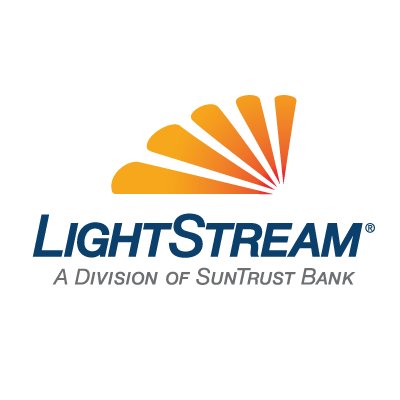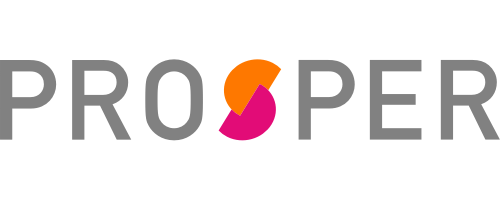Personal loans are loans that are often sought after due to their versatility. Funds acquired through personal loans can be used for whatever the borrower needs.
Often these funds are used for consolidating debts into one payment, planning for future needs, and an almost endless number of other things.
These loans are often unsecured loans which means their interest rates and other terms and conditions vary from case to case. The most significant factor in the variations is your credit score. The biggest problem is which loans are worth looking into.
Just like the list of how funds can be used, the list of personal loan lenders is long. Now, you must figure out which one is trustworthy and will help you, not hurt you. This is actually why we are here.
We have gathered information on the best personal loans so that you can shorten your time hunting for the perfect loan that fits your needs.
Here are The Smart Investor Select’s picks for the best personal loans in 2024:
Lender | APR | Min. Score | Max Amount | |
|---|---|---|---|---|
| LightStream | 6.99% – 25.49% (with autopay) | 660 | $5,000 – $100,000 |
| SoFi | 8.99% – 29.99% | 680 | $5,000 – $100,000 |
| Prosper | 6.99% – 35.99% | 600 |
2,000 – $40,000 |
| Discover | 7.99% – 24.99% | 660 | $2,500 – $40,000 |
Navy Federal Credit Union | 7.49% – 18.00% | N/A | $250 – $50,000 | |
 | U.S. Bank | 8.24-21.49% | 660 | $1,000 – $50,000 |
| Upgrade | 8.49% – 35.99% | 600 | $1,000 – $50,000 |
| Upstart | 5.20% – 35.99% | 300 | $1,000 – $50,000 |
| Citibank Personal Loan | 10.49% – 19.49% APR | 680 | $2,000 – $30,000 |
LightStream
APR
Loan Term
Minimum Score
Loan Amount
- Overview
- Pros & Cons
- FAQ
LightStream, a division of Truist Bank, is an online lender renowned for its competitive personal loan offerings. The lender offers a wide range of loan amounts, from $5,000 to $100,000, accommodating various financial needs and purposes. LightStream's flexible repayment terms, ranging from two to 12 years, provide borrowers with the option to tailor their loan payments to fit their budget and financial goals.
One of LightStream's standout features is its low-interest rates, making it an appealing option for borrowers seeking affordable financing. Additionally, LightStream does not charge any fees, including origination, prepayment, or late fees, further enhancing its cost-effectiveness.
Some drawbacks of LightStream include its stringent eligibility requirements, which may exclude individuals with fair or poor credit histories. Additionally, the lack of a pre-qualification option means applicants must undergo a hard credit check to determine loan terms, potentially affecting their credit scores. Moreover, LightStream's minimum loan amount of $5,000 may be too high for borrowers seeking smaller loans.
- No Fees
- Flexible Term Options
- Competitive Rates
- Rate Beat Program
- Joint Applicants
- High Maximum Amount
- High Credit Score Requirement
- No Soft Pull
- High Minimum Loan Amount
- No Option for Co-signers
How do I apply for a loan with LightStream?
To apply for a loan with LightStream, simply visit their website and complete the online application. You'll need to provide personal information, including your name, address, Social Security number, and details about your income and employment. Once submitted, LightStream will review your application and may offer approval as soon as the same day.
What are the eligibility requirements for a LightStream loan?
To qualify for a LightStream loan, applicants typically need to have good to excellent credit scores, a stable income, and a strong credit history. LightStream prefers borrowers with several years of credit history and a diverse mix of credit accounts.
How quickly can I receive funding after approval?
If your loan application is approved, you may receive funding as soon as the same day, provided all necessary steps are completed before the cutoff time.
Can I use a LightStream loan for any purpose?
Yes, LightStream loans can be used for virtually any purpose, including debt consolidation, home improvements, major purchases, medical expenses, and more. However, there are some restrictions on the use of funds, such as refinancing existing LightStream loans or funding illegal activities.
Are there any penalties for paying off my loan early?
No, LightStream does not charge any prepayment penalties, allowing borrowers to pay off their loans early without incurring additional fees.
SoFi
APR
Loan Term
Minimum Score
Loan Amount
- Overview
- Pros & Cons
- FAQ
SoFi personal loans are a popular choice for borrowers seeking competitive rates and borrower-friendly features. With loan amounts ranging from $5,000 to $100,000 and flexible repayment terms of 2 to 7 years, SoFi accommodates various financial needs. One of its standout features is the absence of fees such as origination, late payment, or prepayment penalties, providing borrowers with transparent and cost-effective lending options.
Additionally, SoFi offers borrower benefits like unemployment protection, career coaching, and financial planning services, enhancing its appeal to individuals looking for comprehensive financial support.
However, there are some drawbacks to consider. The minimum loan amount of $5,000 may be higher than what some borrowers need, limiting accessibility for those seeking smaller loans. Moreover, individuals with credit scores below 680 may face challenges in qualifying for a loan without a co-applicant, potentially excluding certain applicants.
- Joint Borrowers
- Soft Pull Inquiry
- Competitive Rates
- Unemployment Protection
- No Fees
- Autopay Discount
- Slower Turnaround Times
- High Credit Score Requirement
- No Co-signer Option
- Not Available in All States
- Higher Minimum Amount
How quickly can I receive funds after approval?
SoFi offers quick funding, with many borrowers receiving funds as soon as the same day they apply, providing expedited access to needed funds.
Are co-signers or co-applicants allowed for SoFi personal loans?
SoFi allows co-applicants to apply for personal loans, enabling individuals to strengthen their application with a co-applicant's creditworthiness or income.
Can I use a SoFi personal loan for business purposes?
No, SoFi personal loans are intended for personal, family, or household needs and cannot be used for business expenses or investments.
What states is SoFi available in?
SoFi personal loans are available in 29 states as well as Washington, DC. However, eligibility may vary based on state regulations and lending criteria.
How can I contact SoFi customer service?
Borrowers can reach SoFi's customer service team by calling (855) 456-SOFI or through online chat support, available during specific hours throughout the week. Additionally, SoFi provides comprehensive FAQ sections and resources on its website to address common inquiries and concerns.
Prosper
APR
Loan Term
Minimum Score
Loan Amount
- Overview
- Pros & Cons
- FAQ
Prosper is a peer-to-peer lending platform offering personal loans to individuals seeking financial assistance for various purposes. The platform's personal loans range from $2,000 to $50,000, accommodating diverse borrowing needs, and come with flexible terms spanning from two to five years.
One of Prosper's standout features is its accessibility, as it accepts credit scores as low as 600, making it an attractive option for individuals with fair credit who may struggle to secure loans from traditional lenders. Additionally, Prosper offers expedited funding, with approved borrowers potentially receiving their funds as soon as the next business day after approval.
While offering competitive rates and quick funding, presents several drawbacks for potential borrowers. These include origination fees, which can range from 1% to 7.99% of the loan amount, potentially reducing the total amount received. Additionally, borrowers may incur fees for check payments, late payments, and insufficient funds, increasing the overall cost of borrowing.
- Flexible Loan Amounts
- Soft Pull Inquiry
- Joint Applications
- Accepts Fair Credit Scores
- Hardship Program
- Potentially Long Turn Around times
- No Rate Discount for Autopay
- Origination Fee
- No Direct Payment to Creditors
- Limited Repayment Term Options
What are the minimum requirements to qualify for a Prosper personal loan?
To qualify for a Prosper personal loan, you need a minimum credit score of 560, a valid U.S. bank account, and a Social Security number. Additionally, you must be at least 18 years old.
Does Prosper report loan payments to credit bureaus?
Yes, Prosper reports loan payments to all three major credit bureaus (Equifax, Experian, and TransUnion), helping borrowers build or improve their credit scores with timely payments.
Can I change my payment dates with Prosper personal loans?
Yes, Prosper borrowers can change their personal loan payment date once every 365 days by contacting customer support via phone.
How can I reach Prosper's customer service for assistance?
You can reach Prosper's customer service team by phone at 866-615-6319 or via email at support@prosper.com. Representatives are available Monday to Friday from 5 a.m. to 7 p.m. Pacific Time (PT) for assistance with existing loans or recent loan application submissions.
Discover
APR
Loan Term
Minimum Score
Loan Amount
- Overview
- Pros & Cons
- FAQ
With Discover Personal Loans, borrowers can access loan amounts ranging from $2,500 to $40,000, making it suitable for a wide range of financial needs. These loans come with fixed-rate options and terms ranging from 36 to 84 months, providing flexibility to tailor repayment schedules according to individual budgets and preferences.
One notable feature of Discover Personal Loans is the absence of origination fees, application fees, or prepayment penalties. Additionally, Discover offers quick funding, with approved borrowers often receiving funds as soon as the next business day after accepting loan terms.
Some drawbacks of Discover Personal Loans include the minimum credit score requirement of 660, which may limit eligibility for individuals with lower credit scores. Additionally, co-signers are not accepted, and Discover does not provide rate discounts for enrolling in automatic payments.
- Soft Pull Inquiry
- No Origination Fee
- Direct Payment to Creditors
- Competitive Interest Rates
- Available in All States
- No Rate Discounts
- $39 Late Fee
- No Joint Borrowers
- No Co-Signer Option
How quickly can I receive funds after approval of my Discover Personal Loan application?
In many cases, approved borrowers may receive funds as soon as the next business day after accepting loan terms, providing quick access to needed funds for various expenses.
Are co-signers or joint loans available for Discover Personal Loans?
No, Discover Personal Loans are only available to individuals, so co-signers or joint loans are not options.
What happens if I miss a payment on my Discover Personal Loan?
If you miss a payment, Discover may charge a late fee of $39. Additionally, missing payments can have negative consequences on your credit score and overall financial health.
Can I pay off my Discover Personal Loan early?
Yes, borrowers can pay off a Discover Personal Loan early without facing any prepayment penalties, providing flexibility for borrowers to become debt-free sooner.
How can I contact Discover's customer service for assistance with my Personal Loan?
You can reach Discover's customer service by calling their loan specialists at 866-248-1255. Additionally, you can contact Discover’s Customer Advocacy Group at 302-328-3300.
U.S. Bank
APR
Loan Term
Minimum Score
Loan Amount
- Overview
- Pros & Cons
- FAQ
U.S. Bank Personal Loans offer a reliable solution for borrowers seeking competitive rates, fast funding, and flexible terms. With a focus on serving existing customers, U.S. Bank provides competitive APRs ranging between 8.24-21.49%, cater to a wide range of credit profiles. Furthermore, the option to receive a 0.50% interest rate discount by enrolling in autopay adds an extra incentive for borrowers to manage their loan payments efficiently.
One of the standout features of U.S. Bank Personal Loans is the convenience of same-day funding for existing customers with strong credit scores, making it an attractive option for those in need of immediate financial assistance. Additionally, the absence of origination fees and prepayment penalties enhances the overall affordability and flexibility of these loans.
While U.S. Bank extends its lending services to non-customers as well, there are certain limitations, including stricter eligibility requirements and lower loan limits.
- Competitive Interest Rates
- No Origination Fees or Prepayment Penalties
- Fast Funding
- Autopay Discount
- Flexible Loan Options
- Higher Requirements for Non-Customers
- No Soft Credit Check for Prequalification
- No Direct Payment to Creditors
How do I apply for a U.S. Bank Personal Loan?
You can apply online through U.S. Bank's website, where you'll need to provide personal information such as your income, employment details, and desired loan amount. Existing customers may also apply through their online banking portal for added convenience.
How much can I borrow with a U.S. Bank Personal Loan?
Loan amounts range from $1,000 to $50,000 for existing customers and up to $25,000 for non-customers, depending on creditworthiness and other factors.
What are the funding times for U.S. Bank Personal Loans?
Funding times vary but can be as quick as within hours for existing U.S. Bank customers. Non-customers may experience slightly longer processing times.
What credit score do I need to qualify for a U.S. Bank Personal Loan?
U.S. Bank typically requires a credit score of 660 or higher for approval, although higher scores may qualify for more favorable terms.
How do I contact U.S. Bank customer service?
You can reach U.S. Bank customer service by phone at 800-872-2657 or 800-USBANKS, or schedule an appointment online for virtual or in-person assistance.
Navy Federal Credit Union
APR
Loan Term
Minimum Score
Loan Amount
- Overview
- Pros & Cons
- FAQ
Navy Federal Credit Union offers a comprehensive range of personal loans designed to meet the diverse financial needs of its members, primarily comprising military personnel, veterans, and their families
Membership eligibility is a key requirement for applying for a Navy Federal personal loan, with eligibility extended to active-duty military members, veterans, Department of Defense employees, and their families. While specific credit score and income requirements are not disclosed publicly, Navy Federal considers various factors when evaluating loan applications.
One of the standout features of Navy Federal's personal loans is the availability of both secured and unsecured loan options. This allows borrowers to choose the type of loan that best suits their financial situation and goals. Additionally, Navy Federal offers the convenience of same-day funding, ensuring quick access to funds once the loan is approved.
- Competitive Interest Rates
- No Origination Fees or Prepayment Penalties
- Fast Funding
- Autopay Discount
- Co-applicant Option
- Membership Requirement
- No Prequalification Option
- Limited Availability for Non-Military Members
- Late Fee Charges
How do I qualify for a Navy Federal personal loan?
To qualify for a Navy Federal personal loan, you must be a member of the credit union, which typically includes active-duty military members, veterans, Department of Defense employees, and their families.
While specific credit score and income requirements are not disclosed, Navy Federal considers various factors when evaluating loan applications.
Is there an option to prequalify for a loan?
No, Navy Federal does not offer a prequalification option for personal loans. To determine eligibility and view loan options, borrowers must submit an official application, which may involve a hard credit check.
What is the repayment term for Navy Federal personal loans?
Repayment terms for Navy Federal personal loans vary depending on the loan type and purpose. Loans for personal expenses and debt consolidation have terms of up to 60 months, while home improvement loans can have terms of up to 180 months.
How long does it take to receive funds from a Navy Federal personal loan?
The funding time for Navy Federal personal loans can be quite fast, with funds potentially deposited into the borrower's account on the same day of approval. This expedited funding process allows borrowers quick access to the funds they need to address their financial needs promptly.
Upgrade
APR
Loan Term
Minimum Score
Loan Amount
- Overview
- Pros & Cons
- FAQ
Upgrade offers personal loans tailored to various financial needs, including debt consolidation, home improvements, and large purchases. Founded in 2017 and headquartered in San Francisco, the company operates online, providing convenient access to financial products without physical branches. With loan amounts ranging from $1,000 to $50,000, Upgrade aims to cater to a wide range of borrowers.
Prospective borrowers can apply for a loan online, with a streamlined process that involves filling out personal information and undergoing a soft credit check. Upon approval, funds are typically disbursed within one business day, offering quick access to financing. Upgrade's loans come with fixed-rate options, providing stability in monthly payments throughout the loan term.
However, there are some drawbacks to consider. Upgrade imposes an origination fee on all loans, which can impact the total amount received by borrowers. Additionally, the APRs offered by Upgrade can still be relatively high, especially for individuals with lower credit scores.
- Multiple Rate Discounts
- Joint Applications Allowed
- Simple Application Process
- Quick Turnaround Times
- No Prepayment Penalty
- Higher low end rates for those with excellent credit
- Origination Fee
- Not Available in All States
- No Co-signers Accepted
How do I apply for an Upgrade personal loan?
To apply for an Upgrade personal loan, you can visit their website and fill out the online application. You'll need to provide basic personal information such as your name, address, income details, and employment information. After completing the application, Upgrade will conduct a soft credit check to determine your eligibility
What documents do I need to provide for the application?
During the application process, you may need to provide documents such as pay stubs, W-2s, tax returns, or bank statements to verify your income and financial information. The specific documentation required may vary depending on your individual circumstances.
Does Upgrade offer prequalification?
Yes, Upgrade offers prequalification, which allows you to check your potential loan offers without affecting your credit score. This can be a helpful tool to gauge your eligibility and compare loan options before submitting a formal application.
How quickly can I receive funds after approval?
Once your Upgrade personal loan is approved, funds are typically disbursed within one business day. However, the actual timing may depend on your bank's processing times and how quickly you provide any necessary documentation.
What is the minimum credit score required to qualify for an Upgrade loan?
While Upgrade does not disclose a specific minimum credit score requirement, they typically consider borrowers with a credit score of at least 600. However, meeting the minimum credit score alone does not guarantee approval, as Upgrade evaluates various factors such as credit history and income.
Upstart
APR
Loan Term
Minimum Score
Loan Amount
- Overview
- Pros & Cons
- FAQ
Upstart offers personal loans tailored to individuals with varying credit profiles, providing an accessible and streamlined borrowing experience. With its innovative approach to underwriting, Upstart considers factors beyond traditional credit scores, making it an attractive option for borrowers with limited credit history or poor credit.
One of Upstart's key advantages is its quick funding process, with borrowers typically receiving funds as soon as the next business day after approval. Upstart's personal loans can be used for various purposes, including debt consolidation, home improvements, medical expenses, and starting or growing a business.
While Upstart offers competitive rates and loan amounts up to $50,000, borrowers should be aware of potential origination fees and late payment penalties. Additionally, the maximum advertised APR of 35.99% may be higher compared to some competitors, particularly for individuals with poor credit.
- Soft Pull Inquiry
- Flexible Credit Requirements
- Quick Turnaround Times
- No Prepayment Penalty
- Transparent Process
- High Interest Rates
- Origination Fee
- No Joint Borrowers
- Limited Repayment Terms
What are the eligibility requirements for an Upstart personal loan?
To qualify for an Upstart personal loan, applicants must be at least 18 years old, have a valid email address and Social Security number, and reside in the United States. Additionally, applicants must have a regular source of income or a job offer starting within six months.
How does Upstart's underwriting process differ from traditional lenders?
Upstart evaluates various factors, including education, employment history, and area of study, in addition to credit score, to make loan decisions. This innovative approach allows Upstart to extend credit to individuals with limited credit history or unconventional backgrounds.
What are the repayment terms for Upstart personal loans?
Borrowers can choose between three- or five-year repayment terms for Upstart personal loans. This flexibility allows borrowers to select a repayment term that aligns with their financial goals and budget.
What fees does Upstart charge?
Upstart may charge an origination fee ranging from 0% to 12% of the loan amount, deducted from the loan proceeds. Additionally, late payment fees and returned payment fees may apply in certain circumstances.
Can I apply for an Upstart personal loan with a co-signer?
No, Upstart only accepts individual applications for personal loans and does not permit co-signers or joint applicants. Each applicant must meet the eligibility requirements independently.
Citibank Personal Loan
APR
Loan Term
Minimum Score
Loan Amount
- Overview
- Pros & Cons
- FAQ
Citibank offers personal loans to both new and existing customers, providing access to funds for various financial needs. With loan amounts ranging from $2,000 to $30,000 and flexible repayment terms of one to five years, Citibank's personal loans cater to a wide range of borrowers. One of the notable advantages of Citibank's personal loans is the absence of origination fees, late payment fees, and prepayment penalties, allowing borrowers to save on upfront costs and pay off their loans early without incurring additional charges.
Existing Citibank customers may benefit from streamlined application processes and rate discounts, while quick funding options make it suitable for individuals needing immediate access to funds.
However, Citibank's personal loans have some limitations, such as the requirement for applicants to have a Citibank deposit account and the inability to add cosigners or joint applicants. Additionally, the maximum loan amount of $30,000 may not be sufficient for those needing larger sums of money.
- Competitive Interest Rates
- No Origination Fee
- Fast Funding
- Rate Discounts
- Flexible Repayment Terms
- Existing Customer Requirement
- No Prequalification Option
- Limited Loan Amounts
- No Co-Signer Option
What are the repayment terms available for Citibank personal loans?
Citibank offers repayment terms of one to five years, allowing borrowers to choose a term that aligns with their budget and financial goals.
How quickly can I receive funds after approval?
Funds from a Citibank personal loan may be available as soon as the same day of approval for customers with a Citibank deposit account, or within several business days for those without.
Can I apply for a Citibank personal loan if I'm not an existing customer?
Yes – but you'll need toi open an account as a new customer.
Can I make extra payments or pay off my Citibank personal loan early?
Yes, borrowers can make extra payments or pay off their Citibank personal loan early without incurring prepayment penalties, allowing them to save on interest costs and pay off their loan faster.
Can I check my loan rates without impacting my credit score?
Citibank does not offer a prequalification process for personal loans, meaning that checking loan rates requires undergoing a hard credit inquiry, which may temporarily impact the borrower's credit score.
What is a Good Interest Rate on a Personal Loan?
As of 2024, good interest rate on a personal loan will depend on your credit score. You will want to consider up to 36% for bad credit, while good scores can consider 10% or even lower.
This is because the lender will offer different rates depending on your credit score. If your score is very low, you can not expect to get 10% APR, as the lenders will consider it too risky to offer it to you.
However, if you have a good score, you have the chance to shop around for good credit lenders. Some lenders will be able to offer you much lower rates than others, making them more worth your time and money to work with.
Things to do Before Applying for a Personal Loan
Before applying for a personal loan, it's important to take several steps to ensure you're prepared and increase your chances of approval. Here's a checklist of things to do:
Check your credit report: Obtain a copy of your credit report from major credit bureaus (such as Equifax, Experian, or TransUnion) and review it for accuracy. Dispute any errors you find, as inaccuracies could negatively impact your loan application.
Improve your credit score: If your credit score is lower than desired, take steps to improve it before applying for a loan. This may include paying down existing debts, making on-time payments, and reducing credit card balances.
Assess your financial situation: Determine how much you need to borrow and what you can afford to repay each month. Create a budget to understand your current financial obligations and ensure you can comfortably manage loan payments.
Research lenders: Explore different lenders, including banks, credit unions, online lenders, and peer-to-peer lending platforms. Compare loan interest rates, fees, repayment terms, and customer reviews to find the best option for your needs.
Choose the right loan type: Understand the various types of personal loans available, such as secured loans (backed by collateral) and unsecured loans (based on creditworthiness). Select the loan type that aligns with your financial situation and borrowing needs.
Gather necessary documents: Collect all required documentation, such as proof of income (pay stubs, tax returns), employment information, identification (driver's license, passport), and any other relevant financial documents requested by the lender.
Calculate your debt-to-income ratio: Lenders often consider your debt-to-income ratio (DTI) when evaluating loan applications. Aim for a DTI below 36% to demonstrate your ability to manage additional debt responsibly.
Consider a co-signer: If you have a limited credit history or a low credit score, having a co-signer with strong credit can improve your chances of approval and may even help you secure a lower interest rate.
Pre-qualify for loans: Some lenders offer pre-qualification processes that allow you to see potential loan offers without impacting your credit score. Pre-qualifying can help you gauge your eligibility and compare loan terms before formally applying.
Shop around for the best terms: Don't settle for the first loan offer you receive. Take the time to shop around and negotiate with lenders to secure the most favorable terms, including a competitive interest rate and reasonable fees.
By completing these tasks before applying for a personal loan, you'll be better prepared to navigate the borrowing process and increase your likelihood of obtaining approval on favorable terms.
What Can I Use a Personal Loan For?
A personal loan can be used for just about any purpose. The most popular reasons people take out these types of loans are for debt consolidation, medical bills and expenses, weddings, vacations, home improvement projects, and even refinancing an already existing loan.
The best way to use them would be to reach your financial goals, instead of impulsively. A personal loan should only be used when it makes your goals easier to reach. For instance, home improvement projects make your house worth more.
Additionally, consolidating your debt under a lower interest rate would help you pay it off faster. No matter what you choose, you will want to use it well. The best loans for excellent credit include large expenses, whether they be planned or a surprise. You will need to be certainly taking out the loan will not harm you financially in the future.
How to Get a Personal Loan?
Before you take out a personal loan, be sure you are able to follow these steps:
- Determine how much you need to borrow
- Review your credit score
- Find a good lender
- Check your eligibility and get prequalified
- Review the loan details
1. Determine How Much You Need
Remember, when taking out a loan, you will need to pay back more. You are going to be paying interest and possibly a fee to get the money. You do not want to pay on funds you do not need, so only take out what is absolutely necessary.
Additionally, you will want to know you can afford the payments that come later. There is no reason to put yourself into debt if you can help it.
2. Review Your Credit Score
There are some websites that offer a free credit score report. You can get one a year from the biggest brands such as TransUnion, Experian, Credit Karma, and Equifax. Some student loan sources report your credit score a few times a year as well, such as Sallie Mae.
The higher your score, the better APR and loan amount you will receive. If your score is 760 or more, you will have the best options.
3. Find a Reliable Lender
Credit Unions and banks are the best places to go for a personal loan. If they have a banking license and operate under the FDIC, you can be sure they are reliable.
You will want to go to those options first and stay away from Payday loans.
4. Check Eligibility and Get Prequalified
You can call or visit potential lenders to find out if you are eligible for a loan with them. If you are, you can be pre-approved. It does not mean you will get the funds for sure, but it helps. You will be asked to fill out a form with your information.
5. Review Loan Details
Finally, go over the details in the loan. You will want to be familiar with the APR, monthly payments, the loan term, and if there are fees or penalties for late payments. Lenders must legally give you this information.
When You Shouldn’t Get a Personal Loan?
While personal loans can be a useful financial tool for many purposes, there are certain situations when taking out a personal loan may not be advisable. Here are some scenarios in which you should reconsider getting a personal loan:
- Unnecessary purchases: Avoid using a personal loan for non-essential purchases like vacations, luxury items, or entertainment expenses, as this can lead to unnecessary debt.
- High-interest debt consolidation: If you have high-interest debt, such as credit card debt, consider alternatives like balance transfers or debt management plans before resorting to a personal loan, which may also come with high interest rates.
- Unstable income: If your income is unpredictable or you're facing financial instability, taking on additional debt through a personal loan could exacerbate your financial situation and lead to difficulties in repayment.
- Poor credit habits: If you haven't addressed the underlying issues contributing to poor credit habits, such as overspending or late payments, obtaining a personal loan may only provide temporary relief and could worsen your financial situation in the long run.
- Unaffordable repayments: If you're unable to comfortably afford the monthly loan payments within your budget, it's best to reconsider taking out a personal loan to avoid falling into a cycle of debt and potential financial hardship.
How to Compare Personal Loans
When comparing personal loans, consider the following factors:
Interest rates: Compare the annual percentage rates (APRs) offered by different lenders. Lower APRs indicate lower overall borrowing costs. If you have good credit, you may want to check for low-interest personal loans.
Fees: Look for origination fees, prepayment penalties, and any other associated fees. Choose a loan with minimal fees to reduce your overall borrowing costs.
Repayment terms: Evaluate the repayment period offered by each lender. Longer terms may result in lower monthly payments but higher total interest paid over the life of the loan.
Monthly payments: Use online loan calculators to estimate your monthly payments based on the loan amount, interest rate, and term. Ensure the payments fit comfortably within your budget.
Flexibility: Check if the lender offers flexible repayment options, such as the ability to change your payment due date or defer payments in case of financial hardship.
Loan amounts: Determine the minimum and maximum loan amounts offered by each lender. Choose a lender that can accommodate your borrowing needs.
Eligibility requirements: Review the lender's eligibility criteria, such as credit score minimums and income requirements. Choose a lender that aligns with your financial profile.
Customer reviews: Research customer reviews and ratings for each lender to gauge their reputation for customer service and satisfaction.
Special features: Some lenders offer additional benefits, such as direct payment to creditors for debt consolidation loans or interest rate discounts for autopay enrollment. Consider these features when comparing lenders.
Loan terms: Read the loan agreement carefully to understand the terms and conditions, including any potential penalties for late payments or defaults.
By comparing these factors across multiple lenders, you can find the best personal loan that meets your needs and offers the most favorable terms and conditions.
The Potential Risks of a Personal Loan
However, there are some risks of personal loans that you will need to be aware of. It can be nice to make a large purchase right away, but you will need to pay back that amount. When you can not, you might ruin your credit score, among other things.
- Hurting Your Credit
If you miss your payments often, your credit score could be impacted. Even one late payment can cause your score to lose 100 points- taking a “very good” score to “fair” overnight. If you wait longer to make the payment, your score will be damaged even further.
It can take a very long time to rebuild your credit score, so you will want to be sure you can make the payments on time.
- Fees
Some loans come with many fees. For instance, the origination fees we mentioned above. They typically will make up 1 to 8 percent of your total loan amount- which can be a lot depending on circumstance.
However, while rare, you will also want to keep an eye out for prepayment fees. These are fees that are charged when you pay off your loan too early. If you are unaware of this fee, it can be a major surprise to be charged extra money for doing something good.
Requirements for a Personal Loan
There are several common requirements for a personal loan. However, you will want to keep in mind that each lender is a little bit different. Most will still consider you based on the following factors.
- Credit scores – When looking at your credit score, the lender is going to determine how much of a risk they think you are. They will also look at your payment history and income level for the same reason.
Remember, lenders are not giving you money for fun- they expect it to be paid back before the term runs out. They will check all of these factors so they feel confident they are giving a personal loan to a responsible person.
- Payment history – Your payment history impacts your FICO score. If you miss payments, it will be recorded here- making it more difficult to get loans in the future. Lenders are going to give offers to people they believe will make their payments on time.
- Your income level – Lenders are also going to want to look at your income level. They do this to ensure that you will be able to successfully make all of the payments. Lenders do not want to give out money they will never see again, so they look at all of these factors to determine your eligibility
Can I Get a Personal Loan With Bad Credit?
Even if your credit score is not the best, you can still take out personal loans. However, you will need to be aware that your APR is likely to be on the higher side as a result. As long as you pay attention to the loan details and do your research, you should be able to find something that fits your budget.
Bad credit loans are designed for people who have a low score or a short credit history. These loans are an option, but their fees, interest rates, and terms can vary depending on the lender. If you have bad credit, you may want to consider a small personal loan.
You can find bad credit loans at plenty of banks, online lenders, and credit unions, although their threshold for low credit scores will also vary. Plus, some lenders might be stricter, so you will want to check out the details thoroughly.
Personal Loan Mistakes You Should Avoid
There are many potential mistakes that you might make if you are borrowing for the first time. These are the mistakes you will need to avoid.
- Not knowing your credit score – It is crucial that you know your credit score before you apply for a personal loan. You want to get the best terms, but can not unless you know it is good.
- Not comparing options – Even if you need an emergency loan, you will always want to compare your options- something better you might be out there. You can find loans with lower APRs and different lending terms. When you go with the first loan you can find, it is not likely to be a good one.
- Making late payments – On-time payments improve your credit, but late payments can greatly harm your score. Plus, you might also be required to pay late fees. You can avoid this by going with automatic payments or setting reminders for each month in your phone for a few days before it is due.
- Not reading details in the contract – People have a habit of signing things they have not read- never do this with a loan. You might be agreeing to impossible terms. Your lender is required to disclose all information about the terms of the loan, so you will want to ask if you are not understanding something.
- Not considering APR and your term – The APR includes your interest rate, fees, and other charges which add into the cost of the loan. Additionally, your loan term will impact your monthly payment and how long it takes to pay back the debt.
Alternatives to Personal Loans
There are several alternatives to personal loans that you can consider depending on your financial situation and borrowing needs:
Home equity line of credit (HELOC): If you own a home, you may be able to borrow against the equity you've built up through a HELOC. This option typically offers lower interest rates than personal loans because your home serves as collateral.
Credit card balance transfer: If you have high-interest credit card debt, consider transferring the balance to a new credit card with a lower introductory APR or a promotional 0% APR period. Be mindful of balance transfer fees and the ongoing interest rate after the promotional period ends.
Secured loans: Similar to a personal loan, secured loans require collateral, such as a vehicle or savings account. Because they pose less risk to the lender, secured loans may offer lower interest rates than unsecured personal loans.
Borrowing from retirement accounts: Some retirement plans, such as 401(k)s or IRAs, allow you to borrow against your account balance. While this option provides quick access to funds without a credit check, it's essential to consider the potential impact on your long-term retirement savings and any associated penalties or taxes.
Family or friends: Consider asking family members or trusted friends for a loan. While this option may offer more flexible terms and lower interest rates, it's crucial to approach these arrangements professionally and ensure clear repayment terms to avoid straining relationships.
How Does My Credit Score Affect My Offer?
Credit scores can greatly impact the offer you receive from a lender. This is what you need to know.
How Lenders See Credit Scores?
Credit scores can be anywhere between 300 and 850. When lenders check your credit score, they want to see a higher number, as it means you are less of a risk to them. If you have a higher number, then you can expect to receive better offers.
Some lenders might view 670 or above as safe options, although it can vary between lenders.
A higher credit score can save you thousands of dollars, since you will be paying back a lower interest. For example, there is a huge difference between 2% and 4% APR. Depending on the monthly payment, you could be saving a ton of money over the term of your loan.
Can I Pre-Qualify For a Loan?
Yes, the process is usually fast as well. You will start by filling out the pre-qualification form, which asks you for information. It varies between lenders, but your income, job, and debts are all common questions to be asked.
The lender will do a soft credit check, which allows them to view your credit score and credit history. That way, they can determine if you are a risk to them. From there, the lender will either approve or deny your application.
At this point, you receive an offer. You will want to review it, then decide whether you want to apply for the loan offer.
Will a Personal Loan Hurt My Credit Score?
A personal loan can hurt or improve your credit – it can go both ways. It can help your score since it helps you to build a longer payment history, reduce your credit ratio, and make a stronger credit mix.
However, if you do not make payments, it will hurt your score.
Your personal loan can hurt your score in a few different ways. First, it is creating an inquiry on your credit report. That means that lenders are going to have to complete a check on you. That can cause a hard inquiry on your report.
What does that mean? Well, a hard inquiry negatively impacts your credit score. You will want to only apply for loans within the span of a few weeks to minimize the damages, since reports will only see this as shopping around for loans.
Additionally, you might find yourself in more debt. If you can not pay, you will be charged fees and your credit score is going to suffer. You will need to be certain you can afford the payments on the loan.
How Quickly Will I Receive My Funds?
For the most part, personal loans tend to have a fast application processing time- which means if you are going to be approved, it will happen a lot faster. If you decide to go with an online lender, the process could be completed in less than 24 hours.
This is because online lenders have a much more straightforward process than banks and credit unions do. It usually takes 15 minutes to apply and a day at least to be approved. Although, it could take anywhere between 3 days and a week at most.
Once you are approved, you can expect to receive the funds in your account between one to seven business days.
Can I Pay Off My Loan Early?
Whether you can pay off your loan early depends on the terms and conditions of the loan agreement you have with your lender.
In many cases, you can pay off a personal loan early, but it's essential to review your loan agreement or contact your lender directly to understand any potential penalties or fees associated with early repayment.
Some loans may come with prepayment penalties, which are fees charged if you pay off the loan before the agreed-upon term. These penalties are designed to compensate the lender for the interest income they would have received if you had made payments according to the original schedule.
What Happens if I Can’t Pay Back My Loan?
When you miss that payment, a few different things are going to start happening. First, missing a payment is going to hurt your credit- by a lot. It can immediately lower your score by 100 or so points.
Defaulting
When you miss a payment, you can default. When that happens, your account with the loan could be considered delinquent, after missing another payment.
When you default, your loan can be sent to a collection’s department or sold to another agency. Those groups will be able to garnish your wages or even withhold your tax refund as a payment.
Additionally, the lender could seek legal action in some cases. All of these things you will want to avoid, so be sure you only take out loans you know you can pay back.
How Defaulting Affects Credit
Any negative mark on your credit report will stay there between seven and ten years. A single late payment that is reported can greatly hurt your credit score, while multiple missed payments deeply worsen the impact.
Plus, lower credit scores make it harder to approve in the future. Whether that be for a mortgage, a job search, or another personal loan.
Common Personal Loan Terms You Should Know
Here are some basic terms that can help you during the process:
- Installment Loan – A loan that is paid back monthly through set payments.
- Term – The amount of time you have to pay off your personal loan.
- Fixed-Rate – An interest rate that is not going to change, it is common for personal loans. You may not want to consider one without it.
- APR – Or Annual Percentage Rate. It includes your interest rate, fees, and other charges that come with your personal loan.
- Principal – The loan amount that you have borrowed from the lender.
- Fixed Payments – Payment amounts that stay the same each month. They are common with personal loans and keep your payments the same until you have paid it off or adjust the amount yourself.
- Debt Consolidation – This is the process of combining all of your debts into one loan. It can include credit card bills, home bills, and more.
- Cosigner – A person who can sign a loan with you. If your credit score is not good enough or you have not had a long credit history, you may need to have a cosigner to receive a loan. They are required to pay the loan if you are not able to.
- Credit Score – A number given by FICO that lets lenders know how likely you are to repay the loan and make the payments by their due dates.
- Unsecured Loans – These loans are not backed by collateral, which can be a car, boat, home, etc. This means that your belongings can not be taken to pay back a loan when you miss payments.
How We Picked the Best Personal Loans: Our Methodology
In order to figure out which personal loan providers are the best, our team gathered tons of information from over 30 different lenders. These included big banks, credit unions, online lenders, and other specialized finance companies.
To decide on these ratings, we didn't just look at the numbers. We also took into account what people, like you said, mattered most to them when getting a personal loan. We found out what features and qualities were most important.
Our team of experts, who specialize in data and research, did all this work independently. They collected all the data and carefully analyzed it to come up with our star ratings. Our rating system takes into account four broad categories. Here’s a brief breakdown of each one.
- Affordability (40%): We gauge how expensive each company’s loans are to pay back, taking into account both interest rates and fees. The highest-scoring lenders will have low minimum and maximum annual percentage rates (APRs) and low or no origination fees.
- Loan features (30%): This category measures the breadth of loan terms available to prospective customers. The most points go to lenders with a wide range of loan lengths, small minimum loans, large maximum loans, and fast funding.
- Customer experience (20%): We review each company’s application, prequalification and customer service policies and procedures to create this category score. The best companies will have simple online applications and multiple ways for customers to get their problems solved.
- Company reputation (10%): Our team analyzes each company’s Better Business Bureau file, customer reviews and any outstanding regulatory actions. The most points will go to companies with an A+ rating with the BBB, a track record of addressing customer complaints and no active regulatory orders.
Within each major category, we also considered several characteristics, including available loan amounts, repayment terms, APR ranges and applicable fees. We also looked at minimum credit score requirements, whether each lender accepts co-signers or joint applications and the geographic availability of the lender.
Finally, we evaluated each provider’s customer support tools, borrower perks and features that simplify the borrowing process—like prequalification options and mobile apps.
SoFi Terms & Conditions
Fixed rates from 8.99% APR to 23.43% APR reflect the 0.25% autopay interest rate discount and a 0.25% direct deposit interest rate discount. SoFi rate ranges are current as of 03/06/23 and are subject to change without notice. Not all applicants qualify for the lowest rate. Lowest rates reserved for the most creditworthy borrowers. Your actual rate will be within the range of rates listed and will depend on the term you select, evaluation of your creditworthiness, income, and a variety of other factors.Loan amounts range from $5,000– $100,000. The APR is the cost of credit as a yearly rate and reflects both your interest rate and an origination fee of 0%-6%, which will be deducted from any loan proceeds you receive.Autopay: The SoFi 0.25% autopay interest rate reduction requires you to agree to make monthly principal and interest payments by an automatic monthly deduction from a savings or checking account. The benefit will discontinue and be lost for periods in which you do not pay by automatic deduction from a savings or checking account. Autopay is not required to receive a loan from SoFi.Direct Deposit Discount: To be eligible to potentially receive an additional (0.25%) interest rate reduction for setting up direct deposit with a SoFi Checking and Savings account offered by SoFi Bank, N.A. or eligible cash management account offered by SoFi Securities, LLC (“Direct Deposit Account”), you must have an open Direct Deposit Account within 30 days of the funding of your Loan. Once eligible, you will receive this discount during periods in which you have enabled payroll direct deposits of at least $1,000/month to a Direct Deposit Account in accordance with SoFi’s reasonable procedures and requirements to be determined at SoFi’s sole discretion. This discount will be lost during periods in which SoFi determines you have turned off direct deposits to your Direct Deposit Account. You are not required to enroll in direct deposits to receive a Loan.










